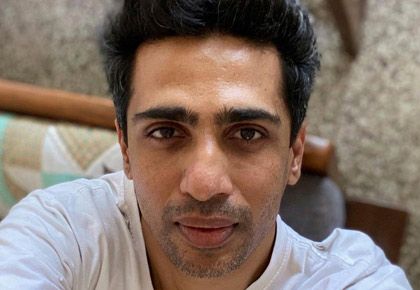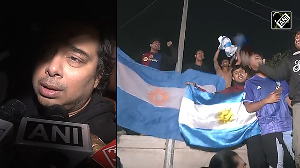'Discussions of favouritism and the #MeToo movement really unearthed a lot.'
'I really hope that these movements force people to look inwards and be nicer to each other.'
'But it's definitely not as bad as it's made out to be.'
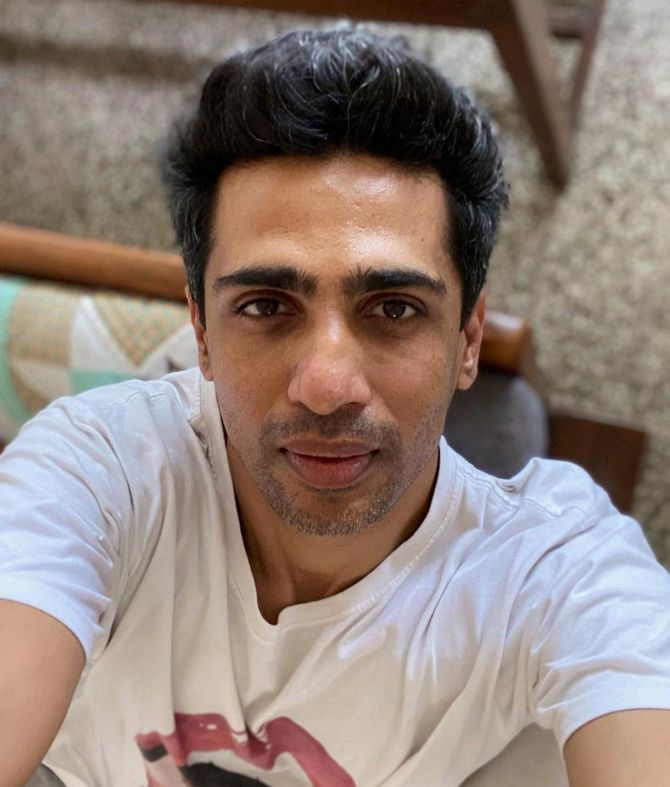
Gulshan Devaiah believes in frank talk.
The actor, who has been a part of films like Shaitan, Hunterr and Mard Ko Nahin Dard Hota, had learnt a lot in his nine-year career, perhaps a result of deep thinking and analysis of the movie business.
"I can have endless conversations with people about life, career, art, and be comfortable with myself. I am more sure about myself and a lot happier about who I am," he tells Ronjita Kulkarni/Rediff.com.
Your next film Footfairy is a crime thriller. Do you like watching films from this genre?
Yes. Recently, I watched the film Raat Akeli Hai and I quite enjoyed it.
Tell us more about Footfairy.
I found the script very interesting. It was well written and relatable.
Kanishq (Varma, director) and I had already bonded on David Fincher and our admiration for him.
For a first-time film-maker, I thought his script was very interesting and well thought of.
We didn't start shooting right away, we had two months of pre-production for the principal cast.
We would read the scenes, have a lot of discussions and that really helped us on set.
I knew my lines backwards, and even the lines of my co-actors!
Even they knew my lines.
We knew what the scene was, who was doing what in the scene, the subtext, the intent, everything.
So we saved a lot of time on set.
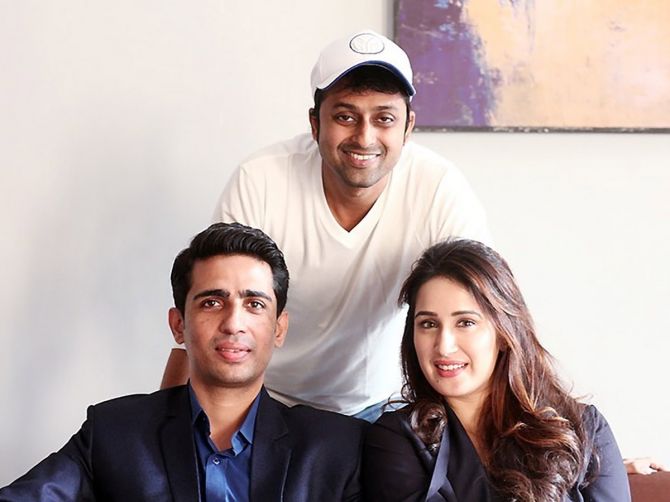
The films in your filmography are mostly festival films, with great reviews and smaller releases. Is that the kind of films you gravitate towards or simply what's offered to you?
I don't make any distinction between films.
I don't categorise films as festival or commercial films.
I look at them on the basis of how much interest it generates in me.
Does the story appeal to me?
Does the character appeal to me?
Is it good for me as a craftsmen?
Is it good for my career?
So it doesn't matter if it's a festival film or not. I try to have as much diversity in my filmography because that's who I am as a person.
You made your debut with Anurag Kashyap's That Girl in Yellow Boots in 2010. How did you get that film?
I was doing a lot of amateur theatre in Bangalore.
I shifted to Mumbai on August 12, 2008 and started working with theatre companies here.
I became friends with Kalki (Koechlin) because some of my flatmates were friends with her.
She hadn't married Anurag at that time, they were living together.
We ended up having the same friends circle.
I think Anurag came to know of me, and they were making this film.
Kalki had seen my plays, I don' t think Anurag had seen any of my work.
She recommended me, so he gave me an opportunity.
He narrated a few scenes to me and asked me to work on them.
After three days, I did an audition in front of him, which was not recorded on camera.
He liked my interpretation of what I did and cast me in that role in That Girl in Yellow Boots.
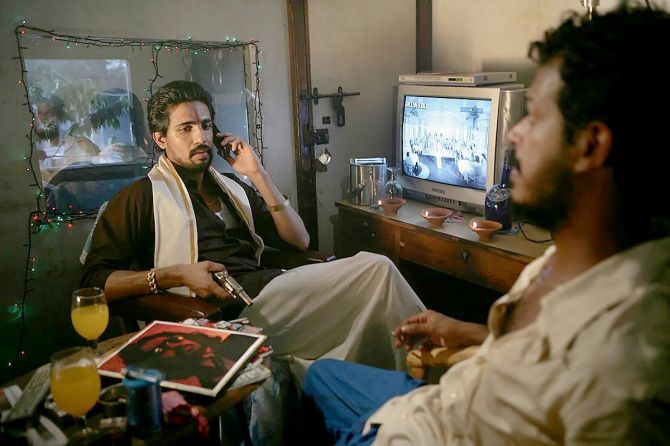
It did well in the festival rounds but didn't get a wide release. Did you feel bad about it?
It released in September 2011, on the same day as Salman Khan's Ready.
At that time, I really didn't know how the business worked.
I was very curious to find out what kind of shows we'll get, how many shows per screen are we getting... I was observing and learning how things worked.
There was no disappointment.
We didn't have high expectations because it was a very small release.
It was the kind of film that didn’t have a very wide appeal in comparison to Ready.
2011 was a big year for you because you had quite a few releases.
Yes. Dum Maro Dum was the first to release that year, then Shaitaan and then That Girl in Yellow Boots, which was technically my debut film.
It was a great year for me.
I got a lot of attention.
It also scared me because I started getting too much attention and I didn't know how to handle it.
I used to be very shy and introverted.
I wanted people to take notice of me but when it happened, I went into a shell (laughs).
But you were right in the middle of all the action, especially at the award ceremonies.
There were some 10 award ceremonies!
During one of the award ceremonies, Shah Rukh Khan took a bunch of us to his house.
I spent three hours there and I didn't know what I was doing! (Laughs)
There were some big stars and important people from the industry there and I was very new.
I felt really uncomfortable among them.
But it also made me realise that if I wanted to survive in this business, I have to feel comfortable.
I have to feel like I belong here.
If I am not comfortable in Bollywood, if I feel I don't belong here, then I won’t belong here.
Other people will also get that feeling that I don't belong here.
So I have to feel comfortable as myself.
In the first few years, I was very uncomfortable being myself.
I had to get over that and be myself.
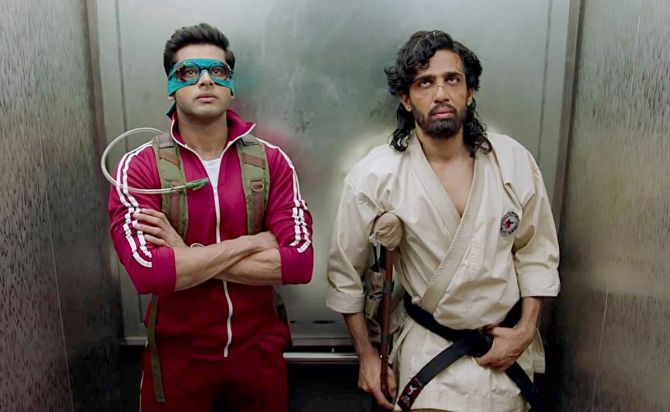
Are you comfortable with yourself today?
Yes. I wouldn't have this conversation with you so freely nine years ago.
Now, I can have endless conversations about life, career, art, and be comfortable with myself.
I am more sure about myself and a lot happier about who I am.
How difficult is it for a person with no film connections to sustain in Bollywood?
It's not easy, but not difficult either.
I started working in Bombay by the third day of coming here.
I knew some theatre people and they gave me work.
I didn't go for every audition or meet a lot of people, I did none of that.
I had my eyes and ears open, and whatever opportunities came, I grabbed them.
One doesn't have to wait for eternity to get opportunities.
But it's not easy because you have to be on top of your game constantly.
Earlier, I didn't realise that I needed to work on my career as well.
If I had thought separately about my career, I would have probably done better than what I have done.
Some people completely exhaust themselves.
They go meet everybody, spend so much money on themselves and totally play the game.
After three-four years, they exhaust themselves.
They don't get anywhere.
I'm okay with losing, with not achieving what I'm setting out to achieve.
Because everything is subjective -- people liking you or your film, or hiring you, everything is based on perception.
Some people have a good perception of me, some people have an okay perception of me, some people have a low perception of me.
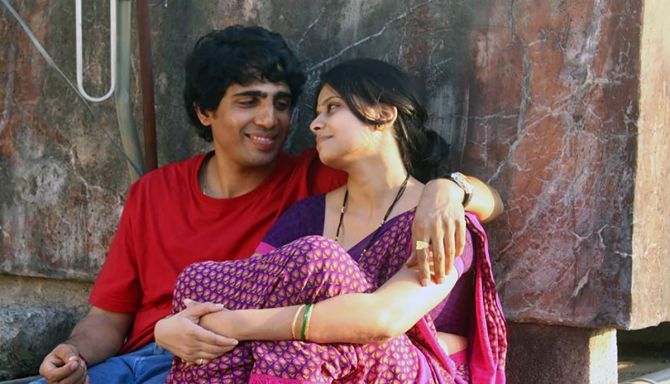
Why do you feel one's career is different from one's craft?
They are definitely related, but we have to work on them separately.
We have to keep getting better either as an actor or director, whatever your craft is.
At the same time, you have to work on your career as well.
Like, for instance, sometimes we see some people are good directors with great work, but we’re not excited with their work now as much as we used to be.
Or sometimes we may be impressed by actors on screen, but their careers are not good.
So we must get better at both separately.
Have you got your due?
I don't know.
I don't know what I deserve.
There are things I want to do, there are things I'm still figuring out.
This is a journey, there's no set destination.
As long as I'm not going backwards, I'm fine with it.
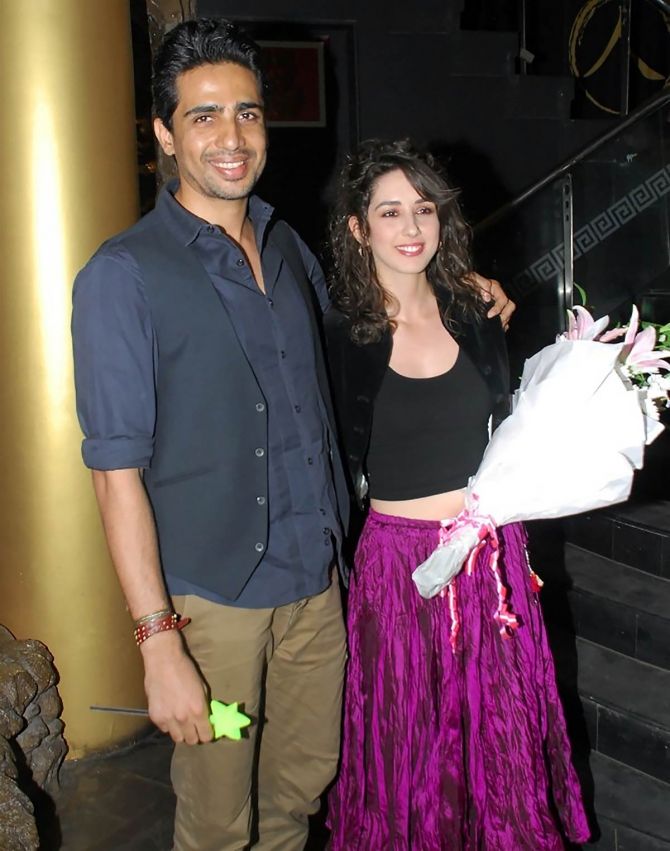
Does the professional pressure take a toll on your personal life?
Yes, definitely.
Life was difficult, and eventually, I had a divorce.
Here I am, trying to have a relationship, trying to have a family, trying to be a husband and also trying to be an actor.
It just became too much.
One thing got more attention than the other.
If you're not doing really well in something, all your attention goes to that and you end up ignoring something else.
That's very common, especially in modern relationships, with people who are very ambitious and career-oriented. Relationships do take a bit of a hit.
You need to work on everything.
So while I was working on my career, I may have taken my eye off my relationship.
What are your experiences in Bollywood?
I feel all the finger-pointing comes from an insincere place.
At the same time, wherever there are power structures, there will be corruption.
Bollywood can definitely be a better place.
Discussions of favouritism and the #MeToo movement really unearthed a lot.
The professionals in this industry can do a lot better.
I really hope that these movements force people to look inwards and be nicer to each other.
But it's definitely not as bad as it’s made out to be.
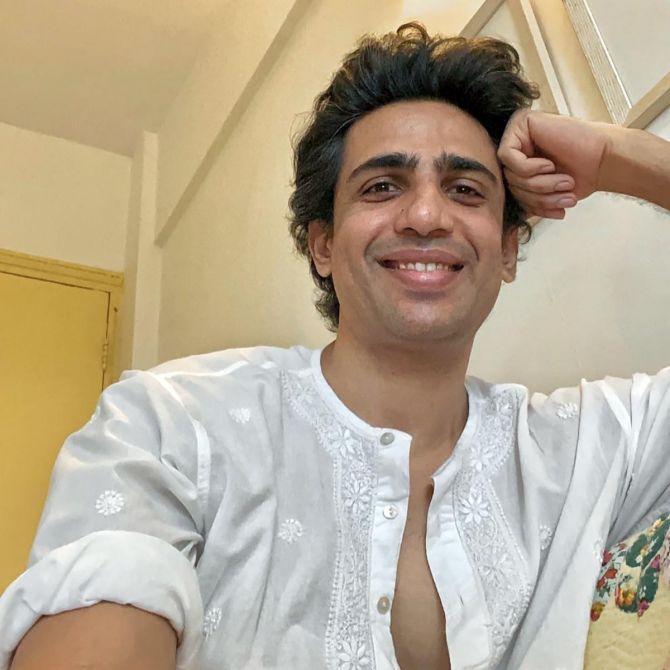
How important is hard work to survive in this profession?
Connections matter, not hard work.
Hard work is very over-rated.
I have seen a lot of people work really hard and get nowhere in life.
It's about smart work.
You have to have the capability and endurance to work hard but you must also know when to do it.
Smart people will always work hard on the right things, at the right moment.
When there is an opportunity, I give it my everything.
But I don't waste my time with opportunities that I feel are not important. Like knocking on people's doors. That's exhausting.
I know people who have done 500 auditions in a year.
I have not even done 50 in my entire existence.
I don't have the fear of missing out.
There's an instinct that tells you that this is a good project for you as an actor and for your career, and that's what happened when I did That Girl in Yellow Boots.
That's what I did even earlier, when I won a national level award for my design collection when I graduated from NIFT (National Institute of Fashion Technology).
I was the least hard working in my batch.
When I would work, I would really do it well. But when I was not working, I was relaxing and rejuvenating myself.
I saw a lot of people who would work the entire day but they got done a lot less than I did.
You must know how to conserve your energy and then give it your all when you really need to.
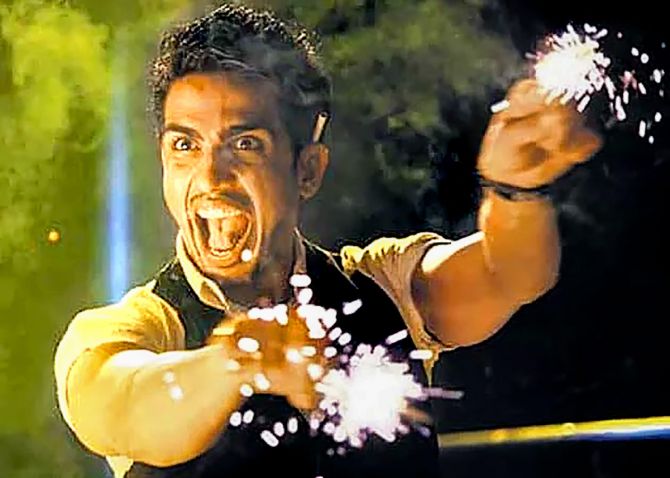
Which films really stood out in your career?
While shooting Shaitan, I felt this film would really get me attention. And that came out to be true.
It gave my career the initial jump.
After that was Mard Ko Dard Nahin Hota.
The film's fate at the box office was dismal, but the impact it had on people created another boost for me.
Hunterr was also important.
Everybody knows me because of Hunterr.
Wherever I go, people don't know my name but they'll shout out, 'Hunterr!'
Wherever in India I go, even in airports abroad!
These are the films that really did something for me.
Did you always want to be an actor?
Truthfully, yes, from a very young age.
But in the interim, I wanted to be many things, like a soldier, a cricketer, a Formula One racer and an international football player. (Laughs)
The two things I was pretty serious about was joining the army and cricket.
I played cricket in school and I was good but I realised that I was not good enough. So I gave up on that idea.
I gave up on the army when I was 16-17 because I had a very romanticised idea of it.
Then I realised I don't like taking orders from people (laughs), so I'm not cut out for the army.
What pushed you towards acting?
I loved cinema.
My mother tells me that I was a bit of a performer from a very young age.
The schools that I went to found some talent in me and were very encouraging.
They encouraged me to put out content, either in a play or a skit or a mime show.
I used to sing also.
I think in my 20s, I started doing theatre in Bangalore.
I started understanding the craft of acting.
I fell in love with it then.
